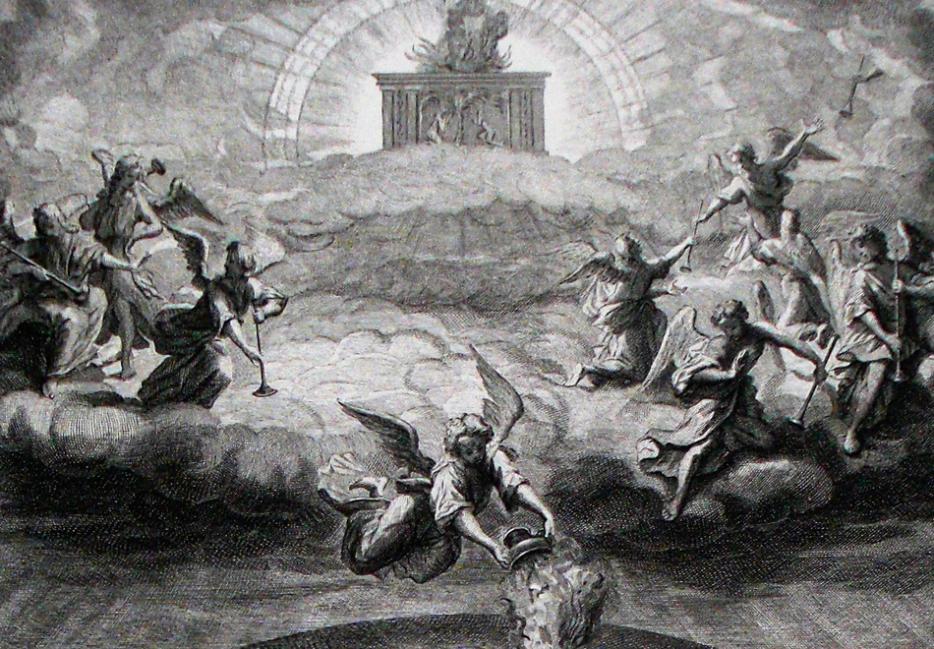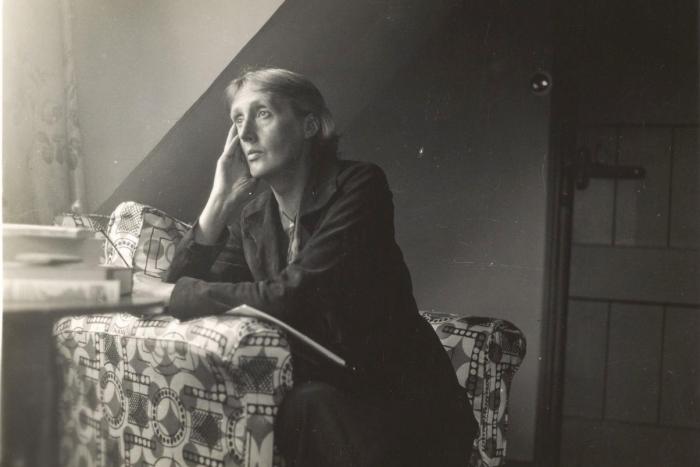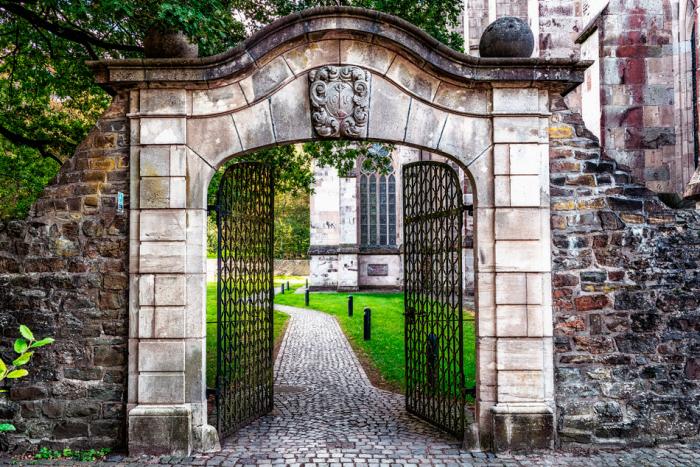What were we obsessed with, invested in and plagued by in 2017? Hazlitt’s writers reflect on the issues, big and small.
One day, says the Gospel of Luke, the disciples approached their master while he was silent in prayer and made a request: “Lord, teach us how to pray” (11:1).
As every day of 2017 seems to bring yet a lower place, I have learned to recognize the yearning in that question.
Prayer has taken a great number of shapes this year—most recently, on December 8th in Pensacola, Florida, during a Trump rally meant to bolster support for nearby Alabama election candidate and pedophile Roy Moore. There, state senator Doug Broxson stood before the multitude and in a loud voice proclaimed cause for great jubilation:
“Now I don’t know about you, but when I heard about Jerusalem! [crowd cheers] Where the King of Kings [cheers again] where our soon-coming king is coming back to Jerusalem, because President Trump declared Jerusalem to be the capital of Israel!”
Broxson’s remarks, helter-skelter though they may be, echo a familiar sound in ears that know how to hear it. They refer to Trump’s sudden decision to move the US embassy in Israel from Tel Aviv to Jerusalem. Ill-advised and baffling, this presidential order was not governed by any coherent mandate based on the facts on the ground in the Middle East, but to appease white evangelicals like Broxson, who form the most stable pylon of Trump’s political base. Alarmed theology scholar Diana Butler Bass has since explained in a series of tweets:
“For decades, conservative evangelicals have been longing for this recognition. They believe it is necessary in order to regain control of the Temple mount […] That is important because rebuilding the Temple is the event that will spark the events of the Book of Revelation and the End Times. […] Of all the possible theological dog-whistles to his evangelical base, this is the biggest. Trump is reminding them that he is carrying out God's will to these Last Days. For certain evangelicals, this is the climax of history. And Trump is taking them there.”
For evangelicals, a timetable has now been set in motion. “Short-fingered vulgarian” he may be, but Trump’s hands now vex to nightmare a rocking cradle. It is, it seems, the end of the world.
Again.
*
In ages of amnesia and rewritten history, one of the most radical acts of political defiance is to remember, and to archive: shoring fragments against a ruin. “This is not normal” has become a way for us, in the midst of our powerlessness, to at least leave some spoken or written record of the indignities and injustices we have been forced to witness. It is another form of communal prayer: our way to mark as a group that we have moved in 2017 out of Ordinary Time, into a state of permanent emergency, into red letter days.
But as nightmare begets nightmare, not-normal has become our normal; I worry even producing a list of this year’s horrors is to at once activate a twinned anxiety of failing to bear witness (what have I left out?), and to feel the guilt of re-traumatizing the already abjected fellow victim.
Nevertheless, if we risk a rehearsal of our traumas:
In 2017, scientists now say global warming is irreversible. As a consequence of its escalation, wildfires and hurricanes are now more frequent and devastating. Areas vulnerable to the progress of this climatological upheaval like the Arctic, Puerto Rico, and Yemen have been left to melt, drown, or bake and then to linger in ruin, their powerlessness made mockingly literal. To enrich a handful of billionaires profiting from fossil industries, every summer for the rest of our lives may well be hotter (and, thanks to moisture released from the frozen quarantine of the ice caps, muggier) and more lethal than the summer before.
In 2017, Chechnya, Egypt, and Azerbaijan are conducting genocides of their gay populations, as their police disappear queer people from the street. Indigenous communities across North America are again under siege as continental oil reserves begin to deplete. Borders are closing in the faces of refugees internationally, as atavistic racist policies such as Brexit and America’s ethno-nationalist “Make America Great Again” movements aim to forestall influxes of immigrants seeking their fortunes in the countries that have heretofore colonized and exploited them. To house the unwanted masses rounded up in these pogroms by agencies such as ICE, America and Australia have revived a familiar 20th century technology: the concentration camp.
In 2017, you can look out your window and see Nazism walking in the daylit street, see Klansmen no longer needing the disguise of their cowls, but profiled in publications that fawn at how “dapper” or “polite and low-key” they seem, even as their marches rain abuse and even kill their fellow citizens. In 2017, people in Canada and the US who warned that pipelines would burst, leak, and poison everything were beaten and arrested; in 2017 those same pipelines have now burst, leaked, and poisoned everything.
In 2017, America has made several attempts, abortive and ongoing, to ban Muslims. In 2017, America has sought to alienate trans personnel from civil rights like military service, and escalated its erosions of gay marriage rights so recently won. In 2017, America has let hundreds die in mass slaughters authored by a plague of ungoverned firearms. In 2017, America has courted nuclear calamity with North Korea, bringing the International Doomsday Clock to hover at its utmost brink at 2.5 minutes to midnight.
In 2017, Donald Trump became President of the United States.
*
What the poet Auden dubbed “the Age of Anxiety” began with the awareness that we had developed the technology to unmake the atom, and thereby acquired the means, for the first time in its history, to eradicate life on earth. A stopwatch then started ticking towards a day when someone callow, venal, and splenetic enough could achieve sufficient political mass, could find as many people as cruel and thoughtless as he, to put his finger on that button.
Cometh the hour, cometh the man.
Donald Trump’s nomination to the most powerful position on earth has been a vertiginous experience—not because it is hard to believe so much malice exists against our fellows, but because it could manifest itself in a form so unbelievably stupid. Trump is only a symptom of a problem reaching critical mass, but he has also been a trumpet-blast unsealing all manner of horror. The fantasy of a “Deep State” has always been the paranoid wish that, even if very wicked, someone is in charge. But now we know: amid the smog, amid the hail of gunfire, amid the posturing imbecilic failsons waving nuclear armament at one another, if left unchecked, we will suffocate our own species to death. The future of the world now hinges on the caprice of an erratic racist, prone to sinking into a moth-eaten befuddlement that has only served to strip the wires of his bigotries and prejudices.
That the hands on the tiller might be malevolent is an old political sensation—perhaps the oldest—but that they should be so oafish, so capable of carnage and so careless of any decency, has left many of us, who were not alive when last western fascism rose, reeling. So much of contemporary political discourse is now become a game of catch-up: decent people waking up to new horrors, trying (in vain) to make these obvious lies stick, to play footages back to back, to find “the tweet for everything,” to insist these contramands and contradictions matter. To no avail.
Because the point is not the truth, but power. In her 1951 essay Eichmann in Jerusalem, which sought to ensure never again and has now become required reading in 2017, Hannah Arendt diagnosed that the totalitarianism that had led to the Holocaust was dependent on a strategy of lying, not as a desire to deceive, but as a desire to foster destabilization, uncertainty, and skepticism:
One could make people believe the most fantastic statements one day, and trust that if the next day they were given irrefutable proof of their falsehood, they would take refuge in cynicism; instead of deserting the leaders who had lied to them, they would protest that they had known all along that the statement was a lie and would admire the leaders for their superior tactical cleverness.
To make the suborned repeat a lie with their own tongue, a lie they know to be a lie, is not just to warp reality, but to warp a soul. In Arendt’s estimation, “The ideal subject of totalitarian rule is not the convinced Nazi or the convinced Communist, but people for whom the distinction between fact and fiction (i.e. the reality of experience) and the distinction between true and false (i.e. the standards of thoughts) no longer exist.”
This is the ultimate horror of 2017, worse than even the spectacle of some armageddon: an evacuation of any meaning at all. In this state, we feel life itself becoming cheapened, devalued, reduced to either a slumped, dead-eyed collusion (Kellyanne Conway’s delighted malignance, Sarah Huckabee Sanders’s clunking indolence, the enervated McCains, Cruzes, and Rubios living long enough to realize their principles, wrong-headed but perhaps honestly felt, have crumpled them into cowardly time-servers) or a mere anxious bareness—call your representatives, negotiate your own hostage release, in a raw apprehension whose panic is edging out a fading hope: that surely some revelation is at hand.
At Jesus of Nazareth’s trial, a man who once had claimed to be “The Way, the Truth, and the Light” confronts a judge from the occupying regime who had suborned his homeland. He has, he says, sought only to testify to truth. He is met with an urbane sneer: “What is truth?” Pontius Pilate asks.
The crucifixion was inevitable after that.
*
I do not know if I am religious, or what it might mean to be “religious.” I think that when I die I am dead, and to wish otherwise is a strange and distasteful selfishness. The matter I am made of has other work to do; I had my turn. I doubt most people who call themselves “Christian” would call me a “Christian,” and Christ himself said that if an eye or hand causes you to stumble, throw it away; I do not think he would have been wedded to labels. But if I am “religious,” I am so insofar as I believe a moment comes when the crushing weight of my responsibility, or guilt, or even sin, is exceeded. There comes a moment, and perhaps it has come in 2017, when I need to believe something better is coming.
We crave apocalypses, in our darkest hearts, because when lies proliferate, they promise an instantiation of meaning, however dreadful. The yearning for armageddon is a desire to instantiate certainty in these moments of disorder; apokalypsis—an “unveiling”—promises, if nothing else, something is behind the curtain. They provide a sense of an ending: what William S. Burroughs called “the naked lunch, in which we at last see what is on the end of every fork.”
These crisis points, in which it becomes impossible to imagine any truth or meaning to history, can then be understood as a recurrent phenomenon, as a part of the unfolding of history itself.
There indeed came a moment for the early Christians themselves (living both under a conquering empire, and as an unwelcome new sect in a culture struggling to survive the destruction of its capital site) when they realized that their Messiah wasn't coming back as soon as they hoped. In growing numbers but dwindling faith, they saw that people who were waiting for the blessed day were growing old, were dying. Was this the promised end? The missionary Paul's letters to the burgeoning and anxious Thessalonian church wrestles with this problem: “But of the times and the seasons, brethren, ye have no need that I write unto you. For yourselves know perfectly that the day of the Lord so cometh as a thief in the night […] But ye, brethren, are not in darkness, that that day should overtake you as a thief” (1 Thessalonians 5:1-4). And so Christianity became a religion poised forever on the edge of apocalypse, writing texts like The Revelation to John about satisfyingly violent conflagrations and listening for tumblers in the lock of history to click.
The wakefulness should sound familiar to us.
But the Christ of the Gospels seems radically disinterested in a terrible final horror or dreadful cataclysm. Homeless, gleaning for food in the field like a sparrow and relying on the kindness of strangers to put him up, he instead seems to have been a man cheerfully resigned to powerlessness, addressing and working among the casualties and collateral damage of empires and kings: fishermen, potters, shepherds, housewives, and whores. He can imagine a day when the world turns upside-down, when the last are first and the widow and orphan are comforted, but timelines and details bore him. Instead he is insistent on being present: "You shall not say of the Kingdom of God, Here it is or there it is. It is here, now, among you" (Luke 17:21).
“Lord,” they said, “teach us how to pray.” It is a question from a space that does not even know how to ask for what it wants, that barely finds the breath to hope for hope. An omnipotent and omniscient divine does not need us to vocalize the anxieties that plague us or the wishes that consume us. But sometimes we do.
Christ’s answer, for all the incantatory and dogmatic significance it is made to bear, is a simple peasant's mantra for detoxing anxiety:
Father, hallowed be your name. Your kingdom come. Give us each day our daily bread. And forgive us our sins, for we ourselves forgive everyone indebted to us. And do not bring us to the time of trial (Luke 11:2-4).
Not a “soon-coming king,” but a father. (At his moment of worst suffering, he calls God abba, which is rather closer to “dad,” and not in the intercultural Greek of his adulthood, but the Aramaic of home and childhood.) Not a them but an us—a community to whom we are indebted, whose indebtedness to us we must learn to let go, and with whom we are meant to pray with one voice. A kingdom always coming, and a trial we hope we are spared. The world is, in the grammar and the posture of his prayer, always about to end. Someday perhaps history's locks will click; someday the just may get their rewards and the world will split apart. Worrying about it is not ours to do.
Tomorrow is not our problem. The end is not our problem. History is not our problem. Instead, when they asked him how to pray, he asked for the bread he needs today, and to help him forgive others and himself for yesterday.
That's all.
*
In 2017, London’s National Theatre remounted Tony Kushner’s Angels in America. The show, starring in this incarnation Andrew Garfield, Russell Tovey, Nathan Lane, and Amanda Lawrence as its angel, is about the apocalyptic suffering endured by the gay community in the early days of the AIDS epidemic.
The text thus hovers in the uncomfortable space of being at once a period piece and deathly urgent; indeed, Tony Kushner has said in a recent interview that he wishes it was not so relevant. But AIDS is now, in 2017, a global pandemic; the disease is still spreading, and forces muster to deny treatment to the “guilty” and the poor (which, for US Republicans, amount to the same thing). Mike Pence, before he became Vice President and the architect of the White House’s current evangelical zeal, was also the direct cause of an HIV outbreak in his home state of Indiana. His aims apparently have not changed; Trump recently joked about Pence during a discussion of LGBTQ rights: “Don’t ask that guy—he wants to hang them all!” Nor is Pence alone; amid growing assaults on medicare, a Republican representative from Georgia has publicly floated the idea of an “AIDS quarantine.” Millennium approaches, but is not with us yet.
In the play, simulcast to theatres around the globe, a delirious Prior Walter (played by Andrew Garfield) approaches the council of angels overseeing Earth in God’s absence. On the threshold of his own ugly death, covered in sores and shitting blood, he asks to be allowed to live. The angels cannot imagine why, and instead unfold to him the dreadful certainty of what is to come: “The slow dissolving of the Great Design, The spiraling apart of the Work of Eternity, The World and its beautiful particle logic All collapsed. All dead, forever. In starless, moonlorn onyx night.”
Still, Prior insists:
PRIOR: But still. Still. Bless me anyway. I want more life. I can’t help myself. I do. I’ve lived through such terrible times, and there are people who live through much, much worse, but…You see them living anyway. […] Death usually has to take life away. I don’t know if that’s just the animal. I don’t know if it’s not braver to die. But I recognize the habit. The addiction to being alive. So we live past hope. If I can find hope anywhere, that’s it, that’s the best I can do. It’s so much not enough. It’s so inadequate, but…Bless me anyway. I want more life.
That was written 26 years ago, and the world has continued spinning forward. The play ends in the dead of winter in Central Park, imagining and hoping that someday the healing fountain of the angel Bethesda will once again flow—“though not literally in Jerusalem,” Kushner’s stand-in Louis says nervously, “I mean we don’t want this to have Zionist implications.”
2017 was a year of apocalypses, but we made it through. Or we will, I think.
So, as the clocks all wind down: I forgive you, and hope you forgive me. If I am breadless I hope you’ll feed me; if you are breadless you can share mine. And we can get through our todays together. If there is a tomorrow is not for us to decide. But I hope so.
I bless you: more life.






